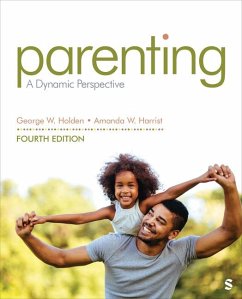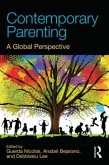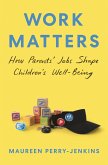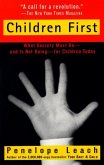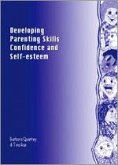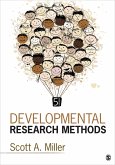- Broschiertes Buch
- Merkliste
- Auf die Merkliste
- Bewerten Bewerten
- Teilen
- Produkt teilen
- Produkterinnerung
- Produkterinnerung
Parenting: A Dynamic Perspective explores the interaction between parents and children as they shape each other over time. George Holden and Amanda Harrist present the latest interdisciplinary research on parenting in an engaging and accessible manner.
Andere Kunden interessierten sich auch für
![The Continuum Concept The Continuum Concept]() Jean LiedloffThe Continuum Concept15,99 €
Jean LiedloffThe Continuum Concept15,99 €![Contemporary Parenting Contemporary Parenting]() Contemporary Parenting68,99 €
Contemporary Parenting68,99 €![Work Matters Work Matters]() Maureen Perry-JenkinsWork Matters23,99 €
Maureen Perry-JenkinsWork Matters23,99 €![Children First Children First]() Penelope LeachChildren First12,99 €
Penelope LeachChildren First12,99 €![Developing Parenting Skills, Confidence and Self-Esteem Developing Parenting Skills, Confidence and Self-Esteem]() Barbara QuarteyDeveloping Parenting Skills, Confidence and Self-Esteem68,99 €
Barbara QuarteyDeveloping Parenting Skills, Confidence and Self-Esteem68,99 €![Developmental Research Methods Developmental Research Methods]() Scott A MillerDevelopmental Research Methods217,99 €
Scott A MillerDevelopmental Research Methods217,99 €![Parentectomy Parentectomy]() Christine GiancarloParentectomy23,99 €
Christine GiancarloParentectomy23,99 €-
-
-
Parenting: A Dynamic Perspective explores the interaction between parents and children as they shape each other over time. George Holden and Amanda Harrist present the latest interdisciplinary research on parenting in an engaging and accessible manner.
Hinweis: Dieser Artikel kann nur an eine deutsche Lieferadresse ausgeliefert werden.
Hinweis: Dieser Artikel kann nur an eine deutsche Lieferadresse ausgeliefert werden.
Produktdetails
- Produktdetails
- Verlag: Sage Publications
- 4th edition
- Seitenzahl: 648
- Erscheinungstermin: 17. September 2024
- Englisch
- Gewicht: 907g
- ISBN-13: 9781071908778
- ISBN-10: 1071908774
- Artikelnr.: 70011291
- Herstellerkennzeichnung
- Libri GmbH
- Europaallee 1
- 36244 Bad Hersfeld
- gpsr@libri.de
- Verlag: Sage Publications
- 4th edition
- Seitenzahl: 648
- Erscheinungstermin: 17. September 2024
- Englisch
- Gewicht: 907g
- ISBN-13: 9781071908778
- ISBN-10: 1071908774
- Artikelnr.: 70011291
- Herstellerkennzeichnung
- Libri GmbH
- Europaallee 1
- 36244 Bad Hersfeld
- gpsr@libri.de
GEORGE W. HOLDEN, Ph.D. is Professor of Psychology at Southern Methodist University in Dallas, TX. He received his B.A. from Yale University and his M.A. and Ph.D. from the University of North Carolina at Chapel Hill. After earning his degree in developmental psychology with a minor in social psychology, he was a member of the psychology faculty at the University of Texas for 23 years. While at U.T., he was head of the developmental area from 1990 to 1996 and the Director of the Institute of Human Development and Family Studies from 1995 to 1997. For five years (1999 to 2004) he served as Associate Chair of the Psychology Department. He is a fellow of the American Psychological Society and a member of the Society for Research in Child Development, the American Professional Society on the Abuse of Children, and the Society for Research in Human Development, where he is currently President. He has been or is on the editorial boards of Child Development, Developmental Psychology, Journal of Family Psychology, Parenting, and the Journal of Emotional Abuse. Dr. Holden's research interests are in the area of social development, with a focus on parent-child relationships. He is especially interested in understanding the determinants of parental behavior, parental social cognition, and the causes and consequences of family violence. For example, he has investigated how parenting is affected and children are impacted by marital violence. Another topic he has investigated in several studies is parental use of physical punishment and children's perception of it. His research has been supported by grants from the National Institute of Child Health and Human Development, Department of Health and Human Services, National Institutes of Justice, the Guggenheim Foundation, and the Hogg Foundation for Mental Health. He is the author of numerous scientific articles and chapters, and the books Parenting: A dynamic perspective (Sage, 2010) and Parents and the Dynamics of Child Rearing (Westview, 1997). In addition he co-edited Children Exposed to Marital Violence (American Psychological Association, 1998) and the Handbook of Family Measurement Techniques, Vol. 2 & 3 (Sage, 2001). He is married and has three children.
PART ONE. Setting the Stage
1. Introduction
2. Theoretical Perspectives on Parenting
3. Determinants of Parenting
PART TWO. PARENTING AND DEVELOPMENT
4. Becoming a Parent
5. Parenting Infants and Toddlers
6. Parenting Preschoolers
7. Parenting During the Middle Childhood Years
8. Parenting Adolescents
Part Three. Parenting Today
9. Parenting Adult Children
10. Parenting in its Contemporary Forms
11. Parents at Risk
12. Parenting Across Cultures
13. Cultural Diversity in U.S. Parents
14. Child Maltreatment: When Parenting Goes Awry
15. Parents and Social Policy
1. Introduction
2. Theoretical Perspectives on Parenting
3. Determinants of Parenting
PART TWO. PARENTING AND DEVELOPMENT
4. Becoming a Parent
5. Parenting Infants and Toddlers
6. Parenting Preschoolers
7. Parenting During the Middle Childhood Years
8. Parenting Adolescents
Part Three. Parenting Today
9. Parenting Adult Children
10. Parenting in its Contemporary Forms
11. Parents at Risk
12. Parenting Across Cultures
13. Cultural Diversity in U.S. Parents
14. Child Maltreatment: When Parenting Goes Awry
15. Parents and Social Policy
PART ONE. Setting the Stage
1. Introduction
2. Theoretical Perspectives on Parenting
3. Determinants of Parenting
PART TWO. PARENTING AND DEVELOPMENT
4. Becoming a Parent
5. Parenting Infants and Toddlers
6. Parenting Preschoolers
7. Parenting During the Middle Childhood Years
8. Parenting Adolescents
Part Three. Parenting Today
9. Parenting Adult Children
10. Parenting in its Contemporary Forms
11. Parents at Risk
12. Parenting Across Cultures
13. Cultural Diversity in U.S. Parents
14. Child Maltreatment: When Parenting Goes Awry
15. Parents and Social Policy
1. Introduction
2. Theoretical Perspectives on Parenting
3. Determinants of Parenting
PART TWO. PARENTING AND DEVELOPMENT
4. Becoming a Parent
5. Parenting Infants and Toddlers
6. Parenting Preschoolers
7. Parenting During the Middle Childhood Years
8. Parenting Adolescents
Part Three. Parenting Today
9. Parenting Adult Children
10. Parenting in its Contemporary Forms
11. Parents at Risk
12. Parenting Across Cultures
13. Cultural Diversity in U.S. Parents
14. Child Maltreatment: When Parenting Goes Awry
15. Parents and Social Policy

